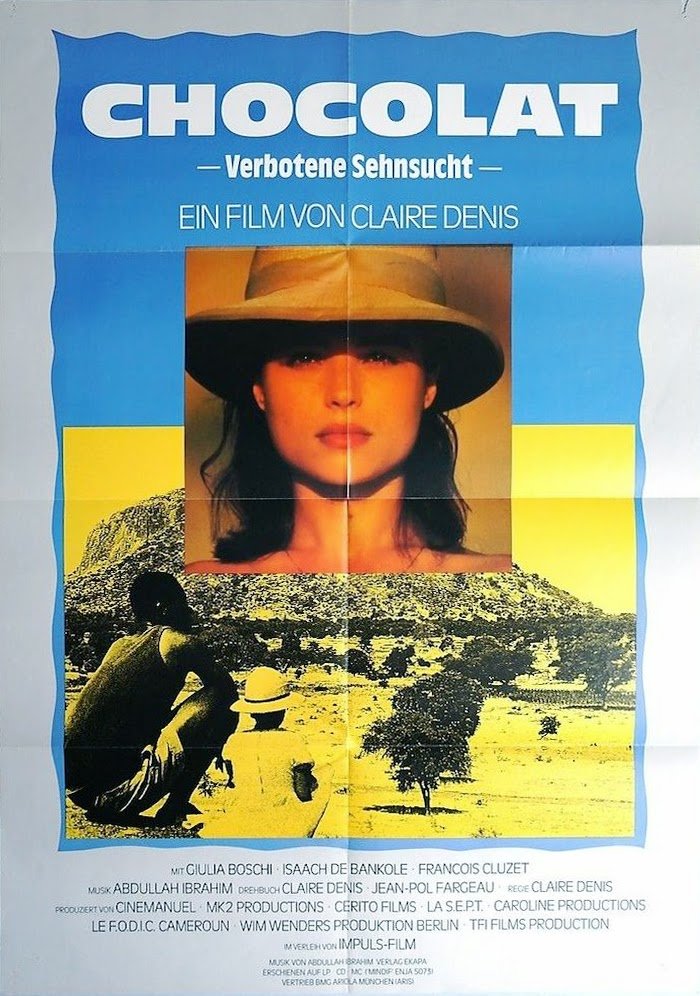Unquestionably the film of Denis' that is most indebted to her influences and mentors. Jarmusch and Wenders' presences can be felt throughout the work. The more rigid and distanced compositions belie the intimacy that her work would later exhibit so naturally. Here, it's still in it's growing stages, developing. Thus, there is almost a bluntness to some of her images here, a lack of the subtlety that would emerge soon after (though these are all aspects that certainly require one to take into context her career as a whole and not view this movie in a vacuum).
On its own, there is a kind of traditionalism to it's formal approach, the influence of her mentors mentioned above, but there's a very common "French"-ness towards a lot of what's here as well. Perhaps coming from the likes of a Rivette or a Rohmer, the way in which she stages certain scenes feels like it comes out of their playbooks. There's very little in what could be called "Cinema of the Body" on display here. The landscape, both exterior and interior, are more immediately striking. It's in the rare display of physicality by De Bankolé that we see this interest first appear and start to take shape. A natural form of sexuality that is inherent within the shape of his body, not in the adoration of a "foreign" body, but his body, specifically, that catches the eye, and certainly Denis' interest.
With that said, the inherent "French" quality of her formal aesthetics do not transfer to her perspective to her characters or her treatment of colonization. There's an even-handedness and a noticeable amount of forethought into the perspective she's showcasing here. Obviously, much has been discussed regarding it's degree of biographical material present in here, but for someone who more than likely came up in a family living in the upper-tier of their society, Denis does not show any indication of either class or racial preference throughout. Certainly, the class inequality is present throughout, but the leveling of her perspective allows for both the upper and the lower classes to exist without the need for caricature. The POV of a child does not show class or racial distinction. A child must be taught these views, they are not inherent within.
It's fascinating that even at such an early stage her fascination with violence is still inherent in her worldview. Certainly not as graphic as later genre-experiments would be, the violence here is perhaps more cruel and haunting than outwardly perceptible. That inherent racism that brings white man to colonize "foreign lands". It's this that breaks the pleasantries after the film's first hour, enriching the texture present, and revealing that for all the niceties that an oppressor can show the oppressed, there is an underlying contempt that will always exist between the two, and that can/will lead to destruction.





















